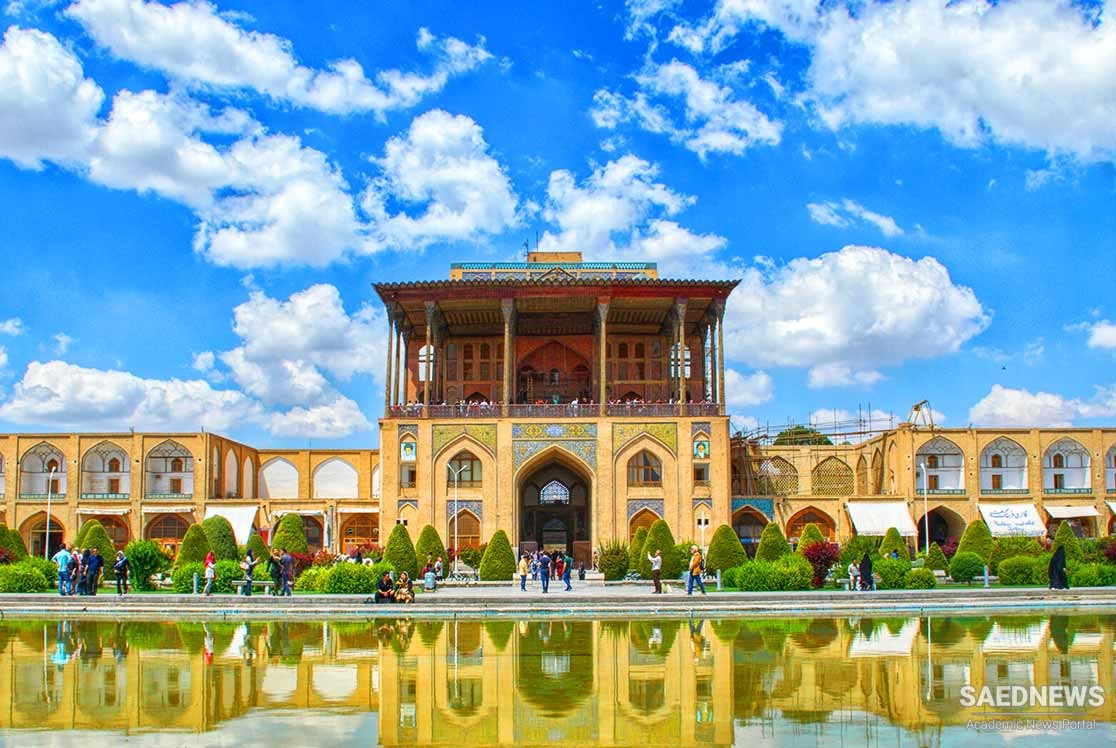A number of these entertained sympathies for his eldest son, the crown prince Safi Mlrza, and would have liked to see him ruling in his father's place, particularly as he had the reputation of good character and warm personal qualities. The very fact of the increasing popularity of the prince was a thorn in the flesh to the shah. When, in addition, he encountered plans to depose him in Safi Mirza's favour, he resolved to remove him from the scene. Upon warnings given by one of the court astrologers and the advice of his closest counsellors, he was persuaded to do away with the prince.
He met his end at the age of twenty-seven while on a visit to Rasht, where, in 1024/1615, he was stabbed to death on his father's orders while returning from his bath. All the evidence suggests that the prince was innocent, as 'Abbas seems to have realised afterwards. At all events, he never recovered, to his dying day, from the horrific memory of his evil decision. Nevertheless, his concern for the security of the throne and his own life had such a grip on him that some time later he had the eyes put out of Prince Sultan Muhammad Mirza, his grandson Sulaiman Mirza, the eldest son of Safi Mirza, and even — at the very end of his life — the crown prince Imam Qull Mirza, thus eliminating them from the succession, which in accordance with Islamic ideas is barred to pretenders who are blind.
The murder of Safi Mirza aroused an enormous sensation of disquiet and horror not only in the shah's entourage but also among the people. In Rasht even riots ensued. But since the circle of those who knew the true facts was a small one, such expressions of anger or protest led to no further consequences. Persian historians, from whom the truth of these events was not hidden, have named Shah 'Abbas "the Great", and so he is known in Iran to this day. In view of his splendid achievements and the services he rendered his country it is a title which can hardly be challenged. Possibly his actions can be judged in a somewhat more lenient light in view of the circumstances of the time in which he lived.
It is too easy for the observer of history, impressed by the record of Shah 'Abbas's great achievements for his country, not only to be tempted to feel that the less spectacular ages which followed his reign were a period of decline, but to see his death as the beginning of the end of Safavid rule. This view is emphatically not justified. Apart from the outward and visible magnificence which continued under the later Safavids, there were in the remaining century of their rule in Iran still decades in which the empire maintained an impressive level of achievement and when large sections of the population were able to enjoy wealth or at least reasonable prosperity, even though the period of territorial expansion was over once and for all.
One fateful cause of the later decline of his dynasty and its power was indeed the work of Shah 'Abbas himself, namely his neglect of the succession. The elimination of royal princes, whether by blinding them or immuring them in the harem, their exclusion from the affairs of state and from contact with the leading aristocracy of the empire and the generals, all the abuses of the princes' education, which were nothing new but which became the normal practice with 'Abbas at the court of Isfahan, effectively put a stop to the training of competent successors, that is to say, efficient princes prepared to meet the demands of ruling as kings. The result was that from then on the princes who came to the throne had from their earliest youth been ruined by living in the women's quarters, by indulgence shown towards them by all around, by courtiers, eunuchs and concubines, and were not only quite useless in the performance of their duties but often totally uninterested.


 Turkmens in Safavid Era: Potential Alley or Actual Enemy?
Turkmens in Safavid Era: Potential Alley or Actual Enemy?














































